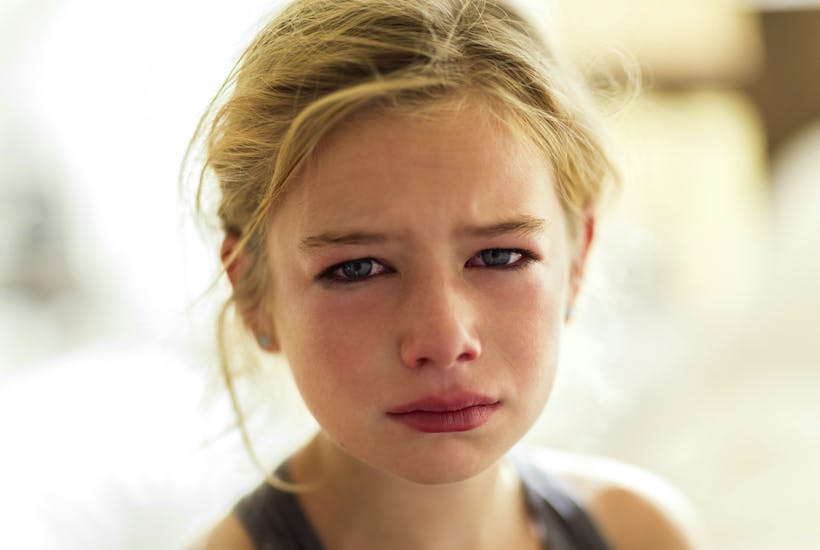A horrific crime was committed in Brisbane last week when a man incinerated his wife and three children before stabbing himself fatally.
It was another example of male generated domestic violence of which there is too much; but would any sensible person think that it will be solved by publishing a slogan “Say No to Domestic Violence”, or by wearing a piece of ribbon. The whole after-episode is just a myopic, example of virtue signalling by ignorant people to an issue that actually reflects an absence of virtue.
It is always the case that the weakest people in any society are at the mercy of the strongest – think of school bullying; think of abortion; think of murdered wives and children.
The solution is with the laws. But they must be good laws that fully understand the cause of the criminal acts. And, surely, after this latest example, even the authors of the current laws, the laws protecting women from violent husbands and ex-husbands, know their laws aren’t good laws because women are still being killed.
You must have noticed that the killing of human beings is an increasing feature of Australian life. No one reports the number of abortions any more, but the front page of the Weekend Australian explained that more than 50 adults had been legally killed under a Victorian law that is euphemistically called the Voluntary Assisted Dying Act. (Misplaced adjective, anyone?)
It used to be the case that the only circumstance in which the taking of another’s life was justified at law, was when your own life was under a genuine and real threat — self-defence. Now it only requires a genuine expectation based on past experience, that your partner might kill you; that you might be in severe pain; or fear that your lifestyle will suffer irreparably by a new child; or that it’s a girl.
There is so much legalised killing in our society — and I am sure all the legalised killing makes life seem so much cheaper.
The most obvious fact is that a common feature of domestic violence is that it is an outgrowth from the relationship between a man and a woman. And, if we do not understand the true nature of that relationship, we will, as seems to be the case, be inviting history to repeat itself.
These days, the current view of that relationship is largely left-wing, drawing heavily on Marx and Engels. That infamous pair understood the sex act as the first example of the division of labour and thus purely economic in character. I think it was Engels who described marriage as legalised prostitution.
The post-war, left-wing theories then developed a new theory reduced the sexual act between men and women as a source of human pleasure with the likelihood of children an unintentional inconvenience to be avoided.
Aristotle, on the other hand, thought the relationship between a man and a woman as the natural basis of the family. Like Plato, he considered the sexual union as a sign of human longing for eternity, as the satisfaction of eros, through children.
If Marx and the left were correct, then the emotional attachments of marriage are a sign of weakness and vanity, to be overcome with counselling, drugs or a new partner. Marriage can be entered into and left at will. Unfortunately, that is the philosophical basis of the Commonwealth Family Law Act and the Marriage Act (as approved by the High Court).
If Aristotle was correct, however, then there is something far more profound, even spiritual in the sexual relationship between a man and a woman and the children they procreate; a meaning that deserves our respect. It is true that in these times, that significance is the furthest thing from the minds of young men and women when in each others’ company. Yet, that is the choice that is currently being unwisely made.
Can young women be trained to make a wise choice of a partner with whom to have a family when the only current instruction are Hollywood rom-coms and ill-written chick-lit?
If we can agree that the object of choice is always ethical, then we need to prepare our children to be ethical. Ethical in that context means something more than joining mum and dad on an Extinction Rebellion weekend glued to Main Street; or eating only vegetables and not wearing leather shoes.
Ethics is about your personal self-control, your moderation of habits, your control of your anger, of your words. It is courage when you are right and contrition when you are wrong. It is gentility and kindness to those weaker than you and it is appreciation for the stronger who act like that to you.
Those old Greeks who wrote books on ethics actually knew a lot about human nature and the effect of the passions. They’re well aware if, even sensible men can be moved by the passions associated with love and anger, how the ignorant and untrained, who are in far greater numbers, can be moved to a much greater extent by those same passions.
If you can imagine all the mischief people would get up to, if they could make themselves invisible; ethics are those habits that protect you from doing things when you are not being watched, that is, invisible: what we can call good habits. And the training starts very early in life. The most useful habits for young men and women to learn are patience and self-control. They are the barest necessity for marriage.
Thanks to a Frenchman, all marriages require the consent of the woman; so it is the woman who must learn to recognise a suitable a man by his habits. To make that choice wisely, she must be able to observe the man over time without the influence of those passions that young love seems ever to excite.
Sound simple? Well if the woman causes the marriage to occur and it is the wife in most cases who filed for divorce, then it’s the woman who is making most of the mistakes and she needs to be better trained. It shouldn’t be enough just to say: “We’re 18 and we’re in love.”
Unfortunately, while the above steps will help over time to reduce family violence, the full force of the law must also be used and I don’t mean harsher punishments after the violence. I have already mentioned that the effect of invisibility is to encourage vice.
That invisibility that non-publication law attaches to certain court proceedings has been mistakenly justified by assuming either that the proceedings are nobody’s business or that the stigma of the proceedings will last a lifetime. Both of those reasons are irrelevant to justice.
That invisibility that the law provides for offenders jeopardises the justice and safety to which women and children are entitled before further violent acts are committed, rather than when it is too late.
Domestic violence orders, the evidence on which they rest and the name of the offender, need to be made public. In fact, the shame of public scrutiny is one of the recognised reasons that people use self-control. It may also be the only warning that a young woman has of his propensity for violence.
For young men, their sense of shame can be sufficient for them to change his ways. A sense of shame — Osric’s pink cheeks when he meets Hamlet — is a natural reaction in young men and women when they are discovered doing something unethical. It is something that the young learn to avoid and in that way, protect themselves when they might otherwise think they are invisible.
And we can take comfort from the fact that if the left find shame so objectionable they want to ban anything that triggers it, that would usually be sufficient recommendation for everyone else.
Dr David Long is a retired solicitor and economist.
Got something to add? Join the discussion and comment below.
Got something to add? Join the discussion and comment below.
Get 10 issues for just $10
Subscribe to The Spectator Australia today for the next 10 magazine issues, plus full online access, for just $10.


























Comments
Don't miss out
Join the conversation with other Spectator Australia readers. Subscribe to leave a comment.
SUBSCRIBEAlready a subscriber? Log in